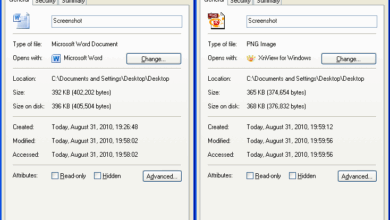How to compare hotel prices on different websites?
How to compare hotel prices on different websites? This question is at the forefront of every traveler’s mind as they seek the best deals for their next getaway. Navigating through the myriad of options available can be overwhelming, but understanding the dynamics of hotel pricing across various platforms can empower consumers to make informed decisions. By grasping the factors that contribute to price differences, you can leverage hotel comparison sites to find the best possible rates for your accommodations.
In a market brimming with choices, it’s crucial to identify the effective techniques for comparing hotel prices. Each website offers unique features and user experiences that can significantly impact your booking process. This guide will delve into popular hotel comparison sites, the strategies they employ, and essential tips for securing the best deals.
Understanding Hotel Price Comparison
Comparing hotel prices across multiple platforms is crucial for travelers seeking the best deals. It empowers consumers by giving them the ability to make informed decisions regarding their accommodation. In an age where competition drives prices, understanding how to effectively compare these rates is more important than ever.Hotel pricing can vary significantly based on several factors. Key influences include demand fluctuations due to seasonality, location, and special events, as well as the specific booking platform used.
Variations in pricing strategies among hotels and online travel agencies can also lead to discrepancies that travelers should be aware of.
Factors Influencing Hotel Pricing Variations
Several factors play a pivotal role in the fluctuations of hotel prices, making it essential for consumers to be aware of them:
- Seasonal Demand: Prices often rise during peak travel seasons or major local events, while off-peak times may offer significant discounts.
- Location: Hotels in popular tourist areas, cities, or regions with high demand typically charge more compared to those in less frequented locations.
- Booking Platforms: Different websites may display different prices for the same hotel due to varying commissions and agreements with hotels.
- Length of Stay: Stays for longer periods can sometimes result in lower nightly rates, as hotels may offer discounts to encourage extended visits.
- Room Type and Amenities: Variations in room quality, size, and amenities can cause price differences among similar hotels.
Common Pricing Strategies Used by Hotels and Booking Websites
Understanding the pricing strategies employed by hotels and booking platforms can demystify why rates differ. The following strategies are commonly utilized:
- Dynamic Pricing: Hotels often adjust their prices in real-time based on demand, competitor rates, and occupancy levels. This pricing model is prevalent among large hotel chains.
- Promotional Offers: Special discounts, packages, or loyalty rewards programs can influence rates and provide added value for consumers.
- Rate Parity: Many hotels strive to maintain the same prices across different platforms, although this may not always be the case due to various agreements and marketing strategies.
- Last-Minute Deals: Some booking websites offer significant discounts on unsold rooms as the check-in date approaches, appealing to spontaneous travelers.
“Understanding the nuances of hotel pricing helps travelers maximize their budget and find the best accommodations suited to their needs.”
If you’re in need of a spontaneous getaway, securing the best deals can be a challenge. Thankfully, there are numerous platforms that offer fantastic last-minute discounts. Discover where to hunt for those unbeatable offers by exploring this guide on Where can I find last-minute hotel deals online? and enjoy your travel adventures without breaking the bank.
Popular Hotel Comparison Websites
When planning a trip, finding the best hotel deal can significantly impact your travel budget. With numerous platforms available, hotel comparison websites simplify the process by aggregating rates from various hotels and booking sites, enabling travelers to make informed decisions. Understanding the unique features and advantages of these platforms can help you select the one that best suits your needs.Here are five popular hotel comparison websites, each with distinctive features that cater to different preferences and requirements.
Overview of Popular Hotel Comparison Websites
The following list highlights notable hotel comparison websites, along with their unique advantages:
-
Booking.com
Renowned for its vast selection of accommodations, Booking.com features over 28 million listings worldwide. Its user-friendly interface allows travelers to filter results based on preferences such as price, location, and amenities. Additionally, Booking.com often includes options for free cancellation, enhancing flexibility for travelers.
-
Kayak
When it comes to luxury hotels, the experience should be nothing short of extraordinary. Essential amenities such as a world-class spa, gourmet dining options, and personalized concierge services are crucial. For a deeper understanding of these must-have features, check out this insightful article on What amenities should luxury hotels always include? to elevate your next stay.
Kayak excels in providing a comprehensive overview of hotel prices from various booking sites. The platform offers a “Price Alert” feature, notifying users when prices drop for their selected hotels. Its intuitive design and powerful search filters make it easy to find the desired accommodation quickly.
-
Trivago
Trivago is a metasearch engine specializing in hotels, which aggregates prices from over 200 booking sites. One of its standout features is the “Rate Comparison” tool, which highlights the best deals and allows users to see pricing trends. Trivago’s clean interface facilitates easy navigation, making it a favorite among price-conscious travelers.
-
Expedia
Expedia is not only a hotel comparison site but also offers combined travel packages including flights, car rentals, and activities. It features a loyalty program, allowing users to earn points on bookings that can be redeemed for discounts. Its extensive reviews and ratings provide insights into accommodations, aiding in the decision-making process.
-
Hotels.com
Hotels.com is known for its straightforward rewards system, where users earn a free night for every ten nights booked. The site offers a simple interface with numerous filtering options, making it easy to find hotels according to specific criteria. Unique features like secret deals and last-minute discounts provide added savings for travelers.
To better understand the differences in user experience and interface among these websites, the following table compares key attributes.
| Website | User Experience | Interface Design |
|---|---|---|
| Booking.com | Highly rated for ease of navigation and fast booking process. | Clean, modern layout with intuitive filtering options. |
| Kayak | Offers robust search tools and price alerts for user convenience. | Sleek interface that prioritizes speed and efficiency. |
| Trivago | Effective comparison features with a focus on affordability. | User-friendly design that emphasizes price transparency. |
| Expedia | Comprehensive travel solutions with package deals available. | Visually appealing, with various travel options highlighted. |
| Hotels.com | Simple booking process with loyalty rewards integrated. | Straightforward, easy-to-use interface tailored for quick searches. |
Effective Techniques for Price Comparison: How To Compare Hotel Prices On Different Websites?
When it comes to booking a hotel, finding the best price is a crucial step that can save you a significant amount of money. With numerous platforms available for hotel bookings, knowing how to effectively compare prices can make all the difference. Implementing strategic techniques not only streamlines the process but also ensures you secure the best possible rates for your stay.To effectively compare hotel prices, you should follow a systematic approach that incorporates various platforms and utilizes the tools they offer.
This process includes selecting your preferred travel dates, identifying the essential amenities you require, and employing filters to narrow down your options based on price, location, and services. By doing so, you can efficiently evaluate available options and make an informed decision.
Steps to Effectively Compare Hotel Prices
Following a concise method can drastically improve your hotel price comparison experience. The steps Artikeld below will guide you through the process:
1. Determine Your Travel Dates and Location
Identify when and where you are traveling. This sets the parameters for your search.
2. Identify Key Preferences
List out essential amenities such as free Wi-Fi, breakfast included, or swimming pools.
3. Use Multiple Comparison Websites
Explore various platforms like Kayak, Trivago, or Google Hotels to get a wide range of prices.
4. Utilize the Filters
Use filters to sort by price, star rating, or guest reviews to further narrow down options.
5. Check Cancellation Policies
Always review the cancellation policy to avoid any unforeseen charges.
6. Cross-Verify with Hotel Websites
Sometimes, booking directly through the hotel can provide better rates or exclusive deals.
7. Look for Promotions or Discounts
Check for any available promo codes or loyalty programs that could provide additional savings.
Using Filters and Sorting Options for Better Results
Filters and sorting options are invaluable tools that enhance your search for the best hotel prices. Implementing these effectively can refine your search results significantly. Utilize filters to sort hotels by price range, star rating, guest ratings, and essential amenities to find the most suitable options quickly. For instance, if you prioritize cost, sorting by “Lowest Price First” will help you quickly identify budget-friendly hotels.
Similarly, for a focus on quality, sorting by “Highest Rated” can direct you to the best-reviewed accommodations.
Checklist for Travelers Comparing Prices Online
A systematic checklist can simplify the process of comparing hotel prices and ensure that no important details are overlooked. Here’s a helpful checklist for travelers:
Travel Dates
Write down exact check-in and check-out dates.
Preferred Location
Identify the area or neighborhood you want to stay in.
Budget
Set a price range to maintain during your search.
Required Amenities
List must-have features (e.g., parking, pet-friendly).
Comparison Websites
Note down at least three comparison websites to use.
Filter Settings
Decide on filters to apply for better-targeted results.
Cancellation Policy
Ensure you understand the cancellation terms.
Direct Booking Check
Compare results with the hotel’s official website for better offers.
Promotional Offers
Look for any available discounts or loyalty programs.By adhering to this checklist, travelers can make their hotel price comparison process more thorough and efficient, ultimately leading to a more satisfying booking experience.
Tips for Finding the Best Hotel Deals

Finding the best hotel deals requires a strategic approach, leveraging various tools and resources available today. By employing a few effective strategies, travelers can unlock significant savings while ensuring a comfortable stay. This section discusses practical tips for maximizing hotel booking efficiency and securing the best possible prices.
Utilizing Rewards Programs and Alerts, How to compare hotel prices on different websites?
Joining hotel loyalty programs can be one of the most effective strategies for finding the best hotel deals. These programs often provide members with exclusive discounts, upgrades, and points that can be redeemed for free nights. Additionally, signing up for price alert notifications from various hotel booking websites can help you stay informed about price drops and special promotions.
- Loyalty Programs: Many hotel chains offer rewards programs that allow you to earn points for every stay. For instance, Marriott Bonvoy and Hilton Honors provide members with discounts and perks. The more you stay, the more you save.
- Price Alerts: Utilizing price alert features on comparison websites like Kayak or Trivago can notify you when your desired hotel drops its rates. This helps you book at the right moment without constantly checking.
- Credit Card Partnerships: Certain credit cards offer travel rewards or cashback on hotel bookings. Using these cards can further enhance your savings, especially during promotions specific to travel-related expenses.
Reading Reviews and Checking Ratings
Before finalizing your hotel choice, it’s crucial to examine guest reviews and ratings. These insights can reveal essential information about the quality and service of the hotel, helping you avoid unpleasant surprises.
- Review Platforms: Websites like TripAdvisor and Google Reviews provide extensive feedback from travelers. Reading recent reviews can help you gauge the current state of the hotel.
- Focus on Verified Reviews: Look for reviews from verified guests, as they are generally more trustworthy. Pay attention to recurring comments about cleanliness, services, and amenities.
- Balance Ratings with Personal Preferences: A hotel might have a low rating due to factors that do not concern you personally. For example, if you prioritize location over amenities, a hotel with a lower score might still be a perfect fit.
Timing Your Bookings for Optimal Pricing
Timing plays a significant role in securing the best hotel deals. Understanding peak and off-peak seasons can help you schedule your bookings for maximum savings.
- Off-Peak Travel: Traveling during off-peak seasons often results in lower rates and less crowded accommodations. For instance, choosing to visit popular tourist destinations in the spring or fall can yield substantial savings.
- Advance Booking: Booking your hotel well in advance, typically 2-3 months prior, can secure lower rates, especially for popular events or holidays.
- Last-Minute Deals: Conversely, if you’re flexible, last-minute bookings can sometimes offer great discounts, particularly for unsold rooms at luxury hotels. Apps like HotelTonight specialize in last-minute deals.









